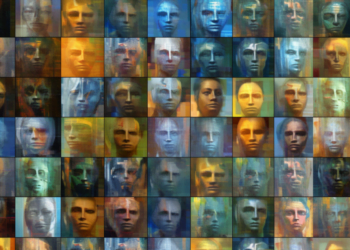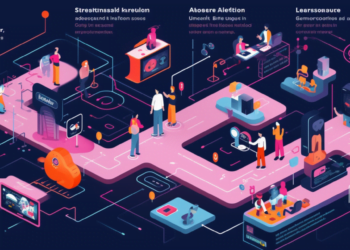Artificial Intelligence (AI) is a field of study that focuses on creating computer systems capable of performing tasks that require a high level of human intelligence. This includes tasks such as natural language processing, problem-solving, and decision-making. Advances in AI have been driven by the development of new techniques and tools in machine learning, such as deep artificial intelligence. These techniques have enabled researchers to create increasingly sophisticated AI systems capable of performing increasingly complex tasks.
In recent years, the field of AI has experienced exponential growth. This is partly due to the increase in computing power, the growing amount of available data, and the development of new machine learning techniques. This has opened new research areas and allowed researchers to tackle increasingly complex problems.
In this article, we will explain the fundamentals of AI, advances in machine learning and deep artificial intelligence, as well as future trends in the field. We will also provide practical tips on how to make the most of these technologies and machine learning tools.
Fundamentals of Artificial Intelligence
Artificial Intelligence (AI) relies on the use of computer algorithms to provide solutions to problems. These algorithms are based on mathematical models describing how systems behave. These models are built using data and can be used to predict the future behavior of a system.
One of the fastest-growing fields of AI is machine learning. Machine learning is an area of AI that focuses on developing algorithms capable of learning from data. These algorithms can identify patterns in data and use them to make decisions. This area of AI has become increasingly important in recent years, due to the rise in the amount of available data and improvements in computing capacity.
Machine Learning
Machine learning refers to the use of computer algorithms to learn from data. These algorithms are based on mathematical models that describe how systems behave. These models are constructed using data and can be used to predict the future behavior of a system.
Machine learning algorithms can be classified into two main groups: supervised learning and unsupervised learning. Supervised learning refers to the use of algorithms that learn from labeled data. This means that the data is labeled with the correct labels, so the algorithm can learn from it. Unsupervised learning refers to the use of algorithms that learn from unlabeled data. This means that the algorithm must learn to identify patterns in the data without the help of labels.
Deep Artificial Intelligence
Deep Artificial Intelligence (DAI) is a machine learning technology that uses deep artificial neural networks to perform machine learning tasks. These neural networks are very similar to biological neural networks and consist of layers of interconnected nodes. These networks are trained using data and can be used to solve increasingly complex machine learning problems.
Deep neural networks have allowed researchers to address increasingly complex problems. This technology has been successfully used to solve issues such as image recognition, natural language processing, and decision-making. This technology has become increasingly important in recent years, and it is expected to develop even further in the future.
Future Trends in Machine Learning and Artificial Intelligence
Advances in the field of Artificial Intelligence and machine learning have enabled researchers to address increasingly complex problems. This has opened new research areas and allowed researchers to tackle more challenging problems. These areas include the development of more efficient machine learning systems, the use of machine learning techniques for decision-making, and the creation of more sophisticated AI systems.
Furthermore, it is expected that new machine learning techniques will be developed in the future and that areas such as distributed machine learning, real-time machine learning, and machine learning for decision-making will be explored. These new areas will allow researchers to address increasingly complex problems and develop more sophisticated AI systems.
Practical Tips
To make the most of the potential of machine learning technologies and artificial intelligence, it’s important to consider some practical tips. These tips include:
• Research the latest advancements in the field. This will help you stay informed of the latest trends and will ensure you are better prepared to make the most of new technologies.
• Use machine learning tools and artificial intelligence tools. These tools will allow you to maximize the potential of these technologies.
• Develop a good understanding of the fundamentals of Artificial Intelligence and machine learning. This will enable you to better understand how these technologies work and help you identify new research areas.
• Collaborate with other researchers to develop new techniques and machine learning tools. This will help you maximize the potential of these technologies and assist you in developing new applications.






















